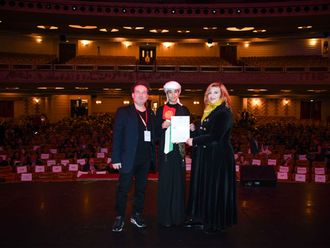A risky joint military training exercise involving hundreds of U.S. soldiers got off to a low-key start yesterday in the southern Philippines, where the Americans could figure in combat to end the terrorist activities of the separatist Abu Sayyaf group which is still holding two Americans and a Filipina.
Some 1,200 Filipino troops and 660 American soldiers, are taking part, but only 160 Americans will be involved in the actual application of their training in Basilan and parts of Zamboanga. Another 500 U.S. soldiers will arrive in mid-February.
"We want to neutralise the Abu Sayyaf, we want the safe recovery of the remaining hostages," said Defence Secretary Angelo Reyes.
The exercises, renamed "Kalayaan-Aguila 2002" (Freedom-Eagle 2002), will last at least six months and are believed to be the first of their kind since the U.S.-led military campaign against bin Laden and his Taliban hosts in Afghanistan.
Apart from the U.S. troops that figure in annual joint war games in the Philippines, the troops will also be the first deployments of U.S. ground forces in this southeast Asian archipelago since tens of thousands of U.S. servicemen vacated Subic Naval Base and Clark Air Base north of Manila in 1992.
The operation would update the application of a half-century-old mutual defence treaty between Manila and Washington, said Defence Secretary Angelo Reyes, stressing that "the world has changed a lot since 1951."
The American soldiers would be allowed to retaliate if fired upon, said Reyes. But, he added: "Unit responses to any threat to the safety of American forces would have to be under the control of a Filipino commander."
"The previous 'Balikatans' shoulder to shoulder (the earlier name of the exercises) were premised on a hypothetical external aggression, not a global threat, and this problem in Basilan is an international threat of terrorism.
"Terrorism has struck at the land of the United States. It can strike in the southern provinces of the Philippines, so this is a threat that is being addressed," said Reyes, when asked to compare the ongoing joint exercise with previous exercises.
Imaginary enemies were targets in past joint exercises, said Reyes, prompting observers to believe that the ongoing war games could be "actual war games with real targets in Mindanao."
Presidential spokesperson Rigoberto Tiglao, who added the U.S. military personnel would not be setting up their own facilities and would be housed in existing military camps and posts.
Emelyn Tapaoan adds: Former senator and ex-defence secretary Juan Ponce Enrile charged Arroyo with violating the constitution, which forbids foreign troops participating in local matters.
The government has allowed the use of U.S. troops against the Abu Sayyaf but has described it as a "military exercise," said Senator Rodolfo Biazon, adding, "Participants in military exercises don't use live bullets."
"This is a local war, and the ASG are local bandits. This is an internal problem and the war against the Abu Sayyaf is not a military exercise," said sociologist Randy David.
"The military exercise will militarise Basilan, Zamboanga, other places in Mindanao, and the surrounding regions," warned activist Congressman Crispin Beltran.
The Bangsamoro Council, an organisation of Muslim leaders in Mindanao, is set to file a petition in the Supreme Court against government officials responsible for allowing a U.S. military exercise in the local war against the Abu Sayyaf group.
"We will file a prohibition and mandamus petition to the SC and the issuance of a writ of preliminary mandatory injunction against the chief of staff, the defence secretary and executive secretary, among others," said the council's chairman Macapanton Abbas.
War games to target Sayyaf
A risky joint military training exercise involving hundreds of U.S. soldiers got off to a low-key start yesterday in the southern Philippines, where the Americans could figure in combat to end the terrorist activities of the separatist Abu Sayyaf group which is still holding two Americans and a Filipina.












